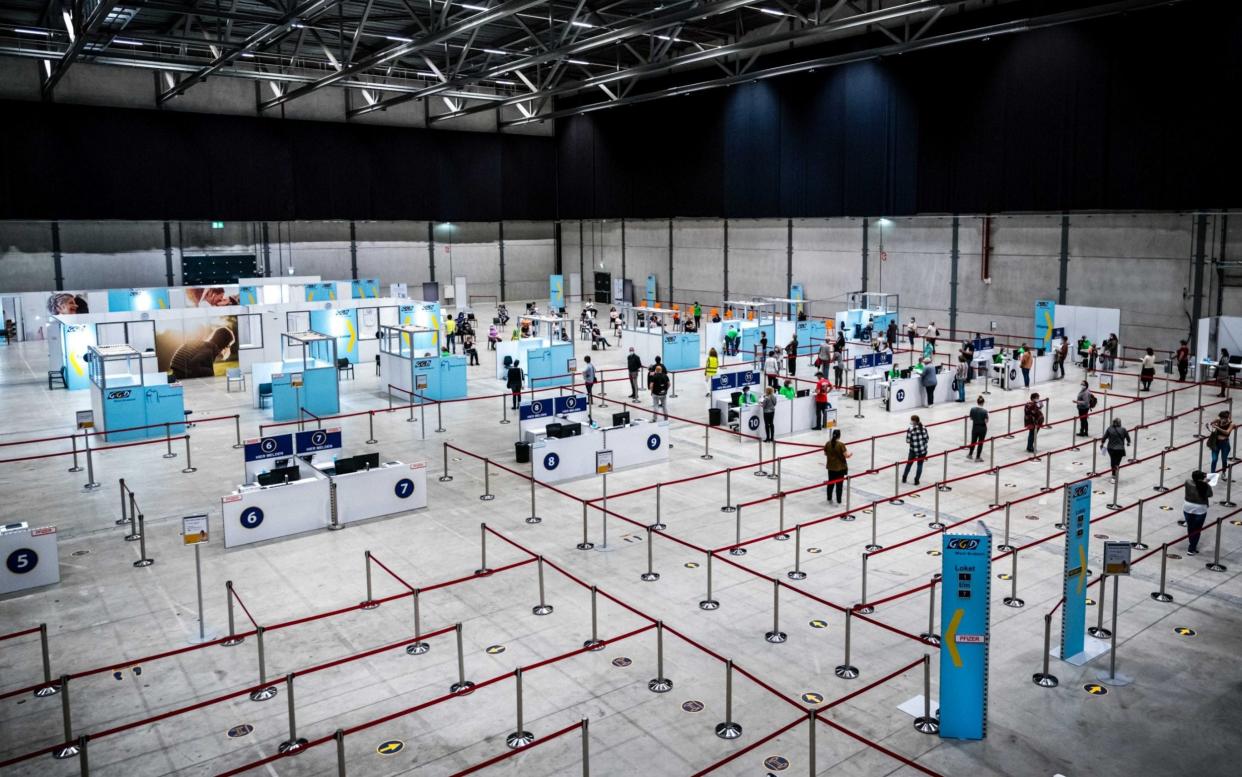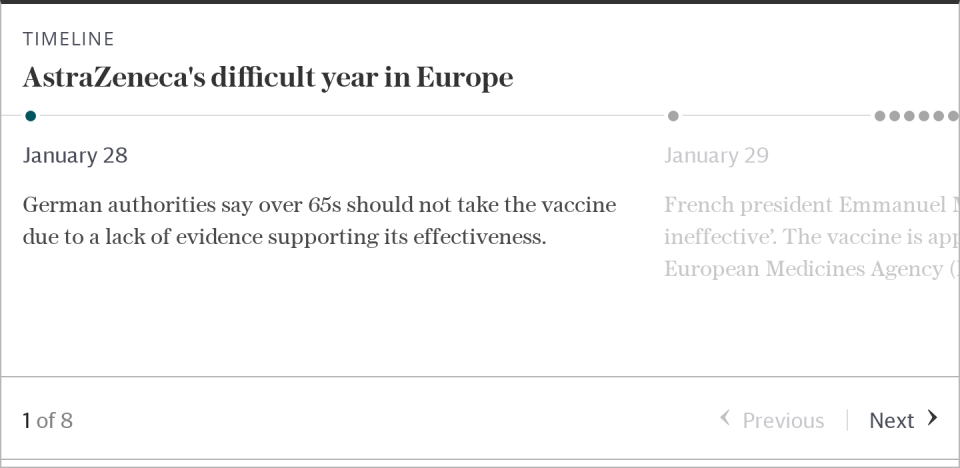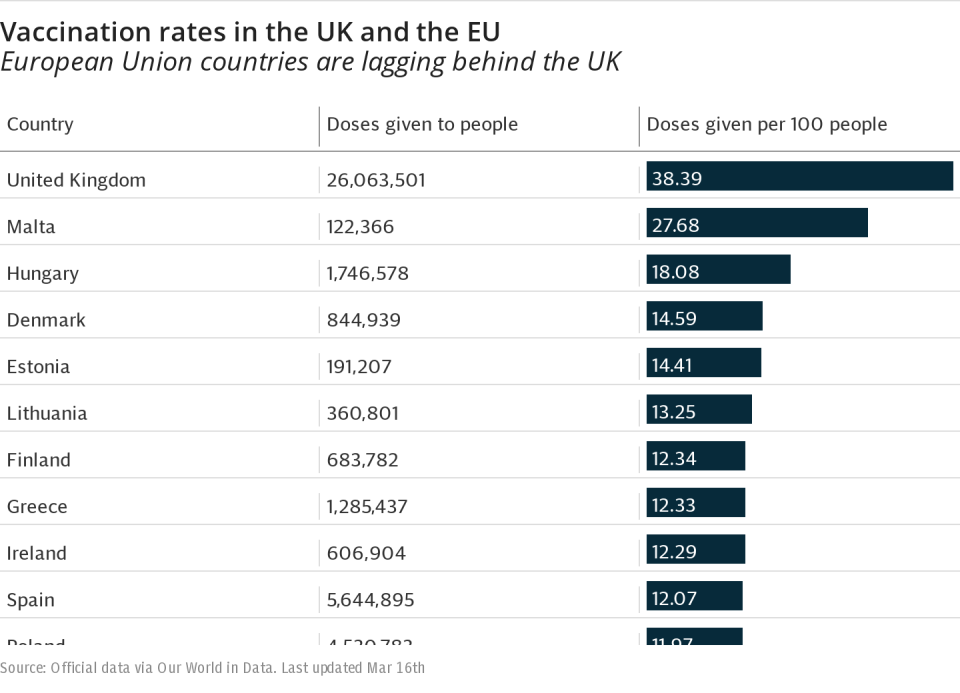Netherlands suspends AstraZeneca Covid vaccine for under-60s

The Netherlands suspended the use of the AstraZeneca vaccine for people under 60 on Friday, forcing the cancellation of 10,000 planned vaccinations.
The decision, which came into effect immediately, was made after a woman died after receiving the shot. No link to the jab has been proven.
The temporary suspension, following similar moves in France and Germany, is linked to fears over blood clots and could be lifted after a report by the European Medicines Agency (EMA) on Wednesday.
Just under 2.4 million doses had been administered in the Netherlands by March 28, according to the European Centre for Disease Prevention and Control – only 12 percent of the adult population.
Hugo de Jonge, the health minister, said: "There should be no doubt whatsoever about the safety of vaccines. We must err on the side of caution, so it is wise to press the pause button now as a precaution."
The woman died of a pulmonary embolism through a rare combination of thrombosis and reduced number of blood platelets.
Last week, the EMA said there was "no evidence" to support restricting the use of the AstraZeneca vaccine in any population. British regulators said they have identified 30 cases of rare blood clot events associated with the jab, but stressed that its benefits in preventing Covid outweigh any risks. AstraZeneca has said its trials show the jab is safe and effective and it is monitoring for side-effects.
A slew of European countries had previously suspended the use of the AstraZeneca jab for people aged above 55 and 60 amid blood clot fears, before lifting those restrictions on EMA advice.
EU countries did not invest enough in vaccine development or production, France's Europe minister admitted in a week that saw the country return to lockdown as a third Covid wave gripped Europe.
Clément Beaune was speaking before The Telegraph revealed that UK taxpayers had made crucial early investments in the Dutch factory at the centre of a burgeoning row between Britain and Brussels.
"On the European level, what we didn't do well is investment in the last phase of the development of the vaccines, and the anticipation of production capacities," Mr Beaune said.
AstraZeneca's Halix plant in the Netherlands received UK taxpayer investment reported to be in the region of £21 million last April, but the government missed a chance to invest 10 million euros and potentially secure more jabs for themselves and the wider EU.

The factory in Leiden, which subcontracts to AstraZeneca, told Brussels it did not receive a "penny" of UK Government funding, a senior European Commission official claimed on Saturday.
Lucia Caudet, a top aide to Thierry Breton, the EU internal market commissioner, tweeted: "Fake news? The management of AstraZeneca's plant in Halix told us they haven't received a penny from UK Government.
A member of Mr Breton's team told The Telegraph: "On the occasion of his visit to the Halix site in Leiden on March 4, Commissioner Breton asked the site management whether they – the Halix site – had received funding from the UK Government, to which they replied twice that the site had been exclusively financed by their own funds."
The question of the British investment, which went to Oxford University before being investing in large vaccine drums at Halix, is particularly sensitive for Brussels and for Mr Breton – who is charged with oversight of supply chains – in particular.
The commission has laid claim to the lion's share of the five million doses of AstraZeneca supplies Halix can produce each month as it scrambles to ramp up vaccine supplies to rescue its slow rollout campaign, which lags far behind those in the UK, the US and Israel.

Mr Breton has warned that AstraZeneca will not be allowed to export any vaccines from the EU until it makes up delivery shortfalls to the bloc to the tune of 200 million doses.
UK officials are arguing that British investment in the Halix plant, and its contract with AstraZeneca, means it is entitled to supplies from the factory. British engineers were also sent to Halix over Christmas to ensure that production was improved. Halix has received no EU funding.
Despite that, Mr Breton said earlier this week there was "nothing to negotiate". Since then, already tough talks have stalled.
The commission also wants AstraZeneca vaccines from the British-Swedish company's two factories in the UK to supply the EU in accordance with its contract. However, Britain's contract gives it first refusal on the UK-manufactured jabs.
It argues that EU factories have exported 21 million jabs to the UK, including one million AstraZeneca jabs, but the UK has exported none in return.
Halix and AstraZeneca both refused to comment.

